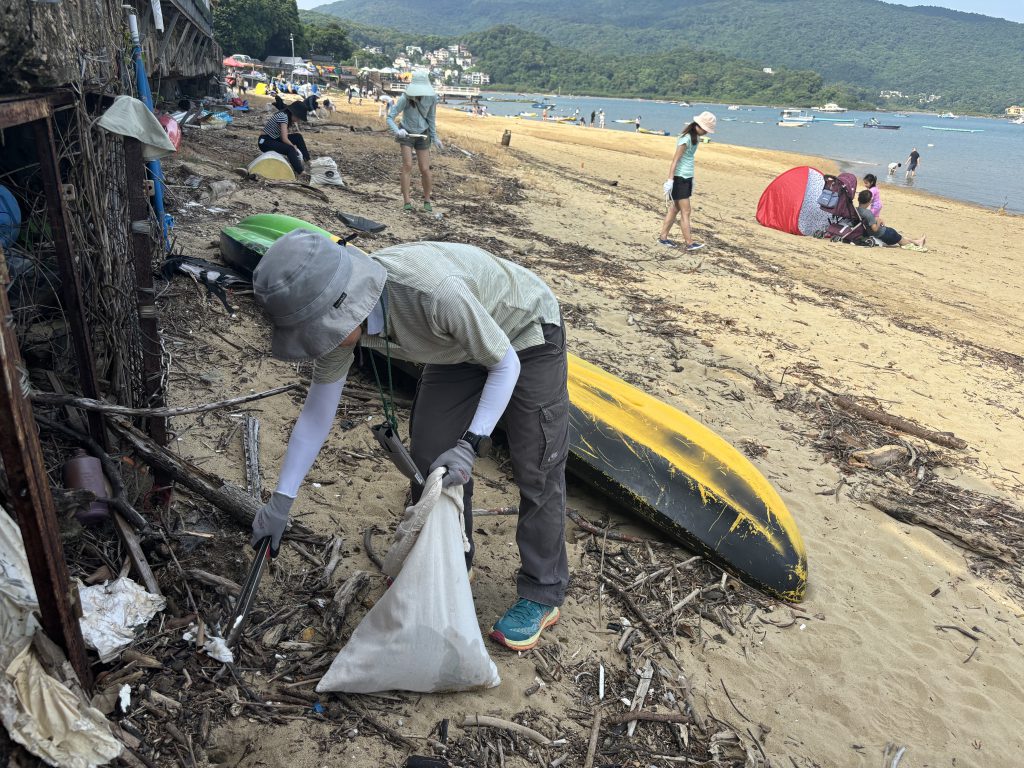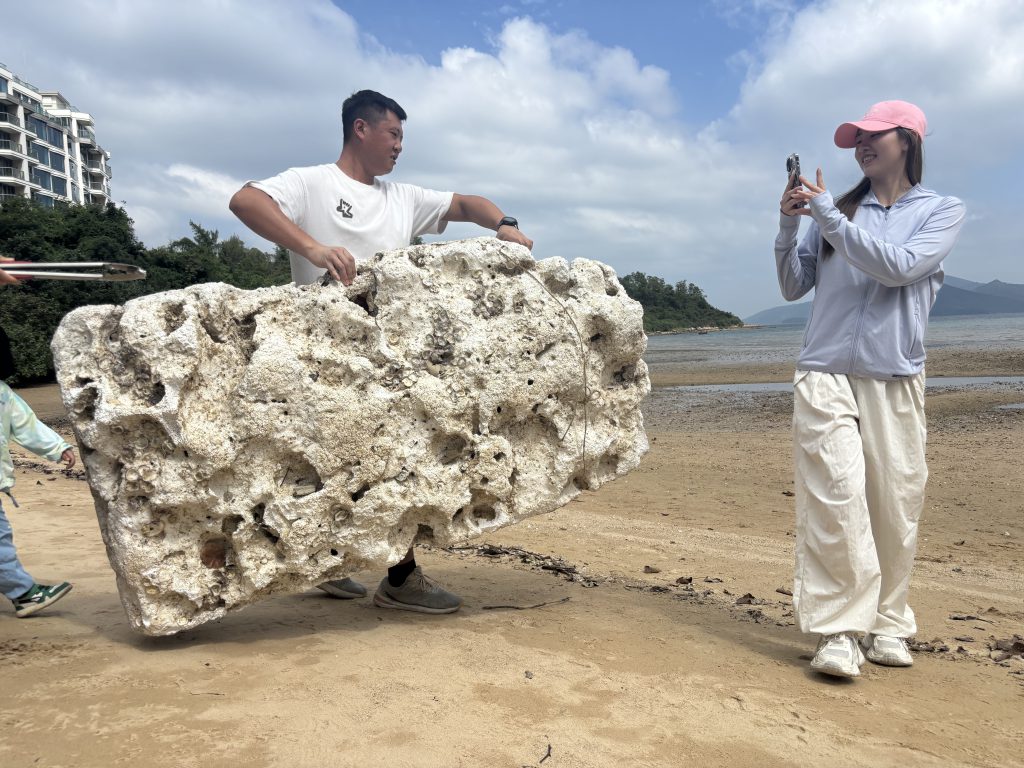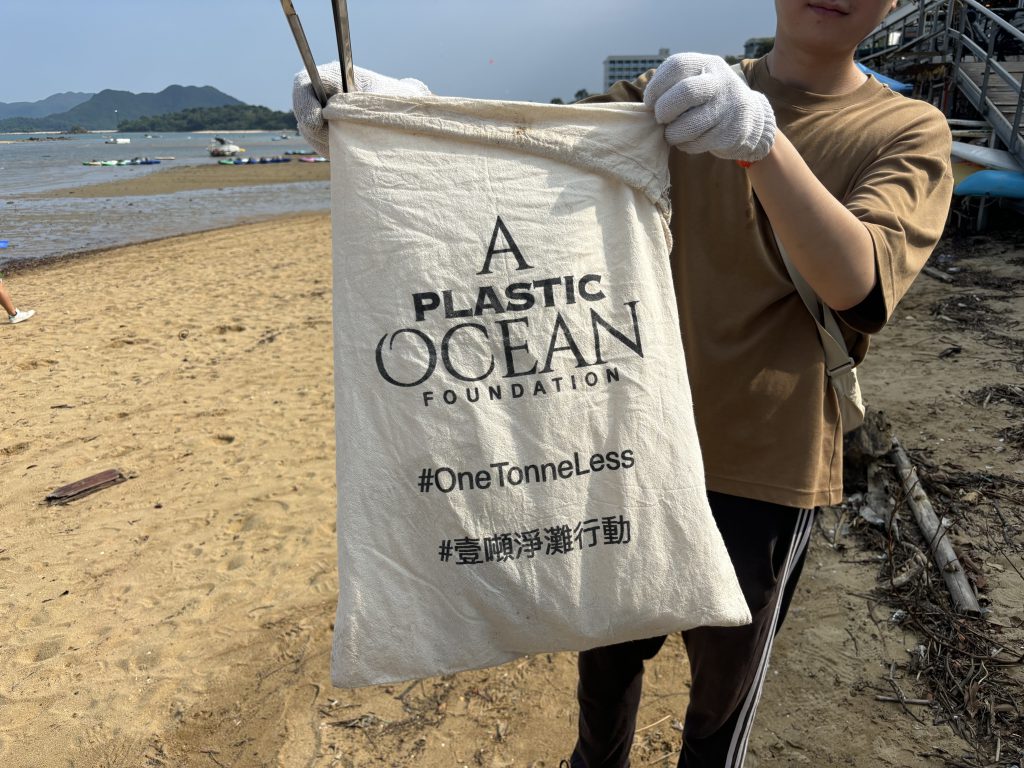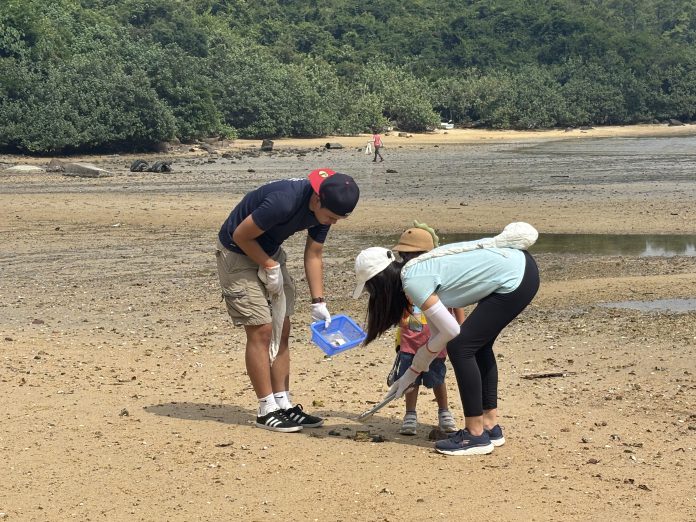Hong Kong volunteers unite for beach clean-up highlights growing marine pollution concerns.
By Suzana Li
Vivi Au is a beach clean-up volunteer who had her first try at Starfish Bay in Ma On Shan with 14 other volunteers including office workers and university students.
“I joined the activity because I think it is very meaningful. Hong Kong has so many beautiful beaches, and we need to take action to protect them,” Au says.

Another volunteer, Alice Ho, who has joined the clean-up activity held by A Plastic Ocean Foundation two times before, is a beach lover. She is sad to see so much rubbish at beaches in Hong Kong.
“After picking up rubbish from beaches, I’ve started thinking more about what I can do. I have encouraged my friends to join the programme,” she says.
“I read many articles and news about marine pollution and microplastics which threaten health. I really want to make an effort to combat the problem,” the university student adds.
The garbage volunteers collect is usually plastic packaging, plastic containers, flip-flops, lighters, toothbrushes and fishing nets.
The NGO organizes two to three clean-up events at different non-gazetted beaches each week.
Non-gazetted beaches are those not regulated or managed by the government, while gazetted beaches are maintained by the Environmental Protection Department, with cleaning frequency ranging from two times a month to six times a week.
Before heading out to clean beaches, volunteers are given a talk on the programme and marine pollution.
They are also given gloves, litter pickers, and baskets for a two-hour clean-up session.
In 2023, the marine pollution concern group collected four tonnes of waste from beaches in Hong Kong.

The partnership manager of the concern group Isabella Bailey Tung points out that the source of rubbish is from different parts of the world.
“We can tell some rubbish is not produced locally by the packaging. We collect rubbish in different languages on their packaging,” Tung says.
“It’s like people dumping whole rooms of furniture out here. I’ve seen everything from toilet bowls to kitchen sinks on the beach,” she adds.
Over 5,123 tonnes of waste were collected in 2023, according to the Beach Water Quality in Hong Kong issued by the Hong Kong Environmental Protection Department.
Of this, 1,121 tonnes were collected from non-gazetted beaches which were estimated to fill approximately five standard-sized basketball courts.
“If we do not collect the waste, they will degrade into microplastics then flow into the ocean, and ultimately invade our food supply, harming our health,” Tung warns.
Tung shares rubbish collected is sent to landfill, while some is reserved for research.
She stresses that the best long-term solution lies in reducing plastic usage.
“Hong Kong’s microplastic concentration isn’t as severe as some developed regions, thanks to good water filtering. But in terms of larger plastic waste, our beaches are littered. And the recycling rate is disappointingly low, even when compared to some Southeast Asian countries,” Tung adds.
Hong Kong disposed of approximately 852,600 metric tons of plastic waste in landfills, accounting for roughly one-fourth of the total municipal solid waste composition, according to the Waste Statistics for 2022 issued by the Environmental Protection Department.
Of this, only 114,600 metric tons were recycled, resulting in a recycling rate of approximately 11.9 per cent.
In contrast, Taiwan achieves a plastic recycling rate of 40 per cent, according to the Resource Circulation Administration Ministry.

On April 22, 2024, Hong Kong officially launched regulations on single-use plastic products, prohibiting the sale and free provision of regulated items.
Senior education officer of the concern group Jasmine Siu says the concerted effort is vital in fighting marine pollution.
“Changing public use of single-use plastics is essential. Ordering takeaway food is a big part of Hong Kong culture. Single-use plastics are convenient and free, so changing habits is a challenge,” Siu says.
“Many people eagerly join cleanups, but it’s hard for them to grasp the vast scale of ocean trash, especially in distant regions. While awareness of plastic pollution is already there, its global severity is still underestimated. Solving this problem requires global investment and action,” she adds.
Sub-edited by Enya So







































